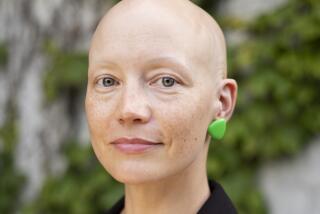Mary Ruefle goes to ground
On the website of the journal Granta, Mary Ruefle writes a lovely meditation on the ground. Ruefle is a poet who teaches in the MFA program at Vermont College; her most recent book, “Madness, Rack, and Honey” — which collects 15 years’ worth of lectures on poetry, life and writing — was a finalist for the National Book Critics Circle Award in criticism in 2012.
Here, she writes with deceptive simplicity about the ground as both reality and concept: as the terrain on which, in the most essential sense, we do our living, and also as a place where things get buried, where the past is hidden, and from which it may also, occasionally, emerge. Building her argument in three long paragraphs, she has produced a hybrid, part essay and part prose poem, that is, as usual in her work, provocative in its juxtapositions, in its intention to make us see.
“It is estimated, she writes, “that everywhere we walk we are walking on a piece of trash and the hard, insoluble remains of the dead. Whatever the case, the dead and the garbage are together in the ground where we cannot see them, for we do not relish the sight or smell of them. If we did not go about our burying, we would be in danger of being overcome.”
For Ruefle, this is our foundation: It is the ground beneath our feet. She’s being literal, of course, but also figurative, metaphorical: offering a way to look at our place in the world, our place in history, that is unexpectedly concrete. She makes the point explicit by connecting it to flowers, which are buried also, in the form of seeds. The difference is that flowers “emerge from the ground in their later form, that is, as plants” — the opposite of what the dead and garbage do.
“Nothing, it seems,” Ruefle observes, “makes the living as happy as a flower. ... For this reason, we separate the flower from the ground and present it to another to hold or to look at.” And yet, flowers, too, eventually die and become garbage, buried again in our never-ending landfill of a world.
Such circularity is at the heart of Ruefle’s mini-essay, which is about cycles and renewal, as much as what we put away. “Flowers,” she concludes, “are often planted where the dead are buried in boxes, but these flowers are never cut. That would be horrible. Whoever did such a thing would be considered a thief. Those flowers belong to the dead.”
ALSO:
Flannery O’Connor and the art of prayer
The found poetry of Jeff Griffin’s ‘Lost And’
Harryette Mullen walks Los Angeles into verse
More to Read
Sign up for our Book Club newsletter
Get the latest news, events and more from the Los Angeles Times Book Club, and help us get L.A. reading and talking.
You may occasionally receive promotional content from the Los Angeles Times.







